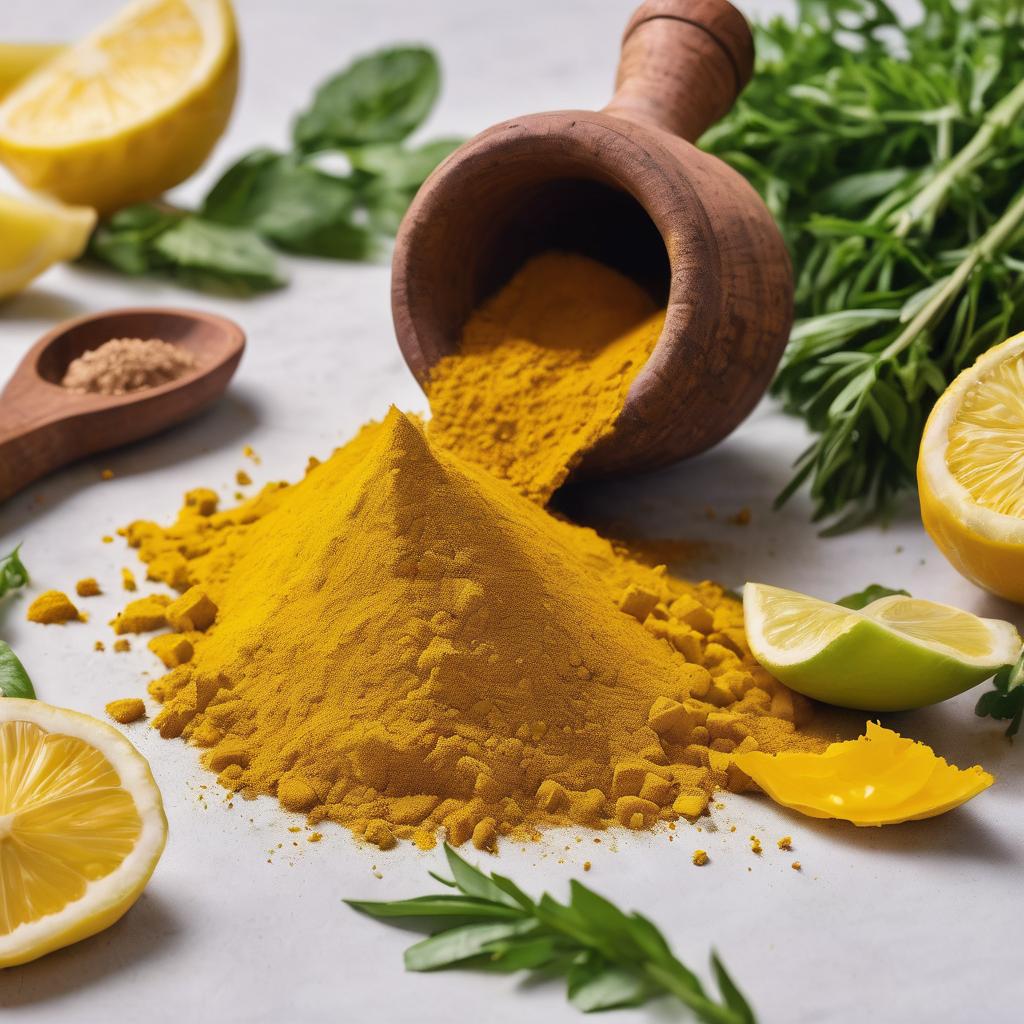
Are you tired of struggling with liver disease? Look no further! In this article, we’ll explore the incredible benefits of curcumin and how it can help improve your liver health naturally. Curcumin, found in turmeric, has been scientifically proven to reduce inflammation, act as an antioxidant, aid in detoxification, and even promote liver regeneration and repair.
So, if you’re ready to take control of your liver health, keep reading to discover how to incorporate turmeric into your natural liver disease remedies.
Key Takeaways
- Curcumin, the active compound found in turmeric, has been scientifically proven to reduce inflammation, act as an antioxidant, aid in detoxification, and promote liver regeneration and repair.
- Curcumin supplementation can have a positive impact on liver enzymes and is a valuable supplement for individuals with liver disease.
- Turmeric possesses anti-inflammatory properties that can benefit liver health, and curcumin inhibits pro-inflammatory signaling molecules and enzymes involved in the production of inflammatory molecules.
- Incorporating turmeric into the diet by adding it to meals or taking turmeric supplements can help reduce inflammation in the liver and promote overall liver health.
Understanding Liver Diseases
You should be aware that a variety of factors can cause liver diseases in order to better understand them.
The liver is a vital organ responsible for performing essential functions in the body, such as filtering toxins from the blood, producing bile for digestion, and storing vitamins and minerals. Liver diseases can range from mild to severe and can be caused by factors such as viral infections, excessive alcohol consumption, obesity, autoimmune disorders, and certain medications.
One of the key aspects of liver disease prevention is maintaining a healthy lifestyle. This includes eating a balanced diet, exercising regularly, and avoiding excessive alcohol consumption. A healthy diet should consist of fruits, vegetables, whole grains, lean proteins, and limited amounts of saturated fats and added sugars. Regular exercise not only helps maintain a healthy weight but also improves liver function.
It is important to be aware of the symptoms that may indicate liver disease. These can vary depending on the type and severity of the condition but may include fatigue, jaundice (yellowing of the skin and eyes), abdominal pain and swelling, nausea, vomiting, and changes in urine and stool color.
If you experience any of these symptoms, it is crucial to consult a healthcare professional for further evaluation and diagnosis.
Further Research
Liver Disease: Types of Liver Problems and More, Crystal Raypole, 2019, Headliner, https://rb.gy/js93ob
Liver Problems: Symptoms and Causes, Mayo Clinic, 2018, https://www.mayoclinic.org/diseases-conditions/liver-problems/symptoms-causes/syc-20374502
Benefits of Curcumin for Liver Health
As you continue to explore the topic of liver diseases, it is important to delve into the benefits of curcumin for liver health. Curcumin is the active compound found in turmeric, a spice commonly used in Indian cuisine and traditional medicine. Numerous studies have shown that curcumin has a positive impact on liver enzymes and can be a valuable supplement for individuals with liver disease.
To better understand the benefits of curcumin for liver health, let’s take a look at the following table:
| Curcumin’s Impact on Liver Enzymes | Curcumin Supplementation for Liver Disease |
|---|---|
| Reduces inflammation in the liver | Helps protect the liver from oxidative stress |
| Inhibits the growth of liver cancer cells | Improves liver function and detoxification |
| Prevents fat accumulation in the liver | Supports the regeneration of liver cells |
Research has shown that curcumin has anti-inflammatory properties, which can help reduce inflammation in the liver. It also acts as an antioxidant, protecting the liver from oxidative stress. Additionally, curcumin has been found to inhibit the growth of liver cancer cells and prevent the accumulation of fat in the liver.
Curcumin supplementation has been shown to improve liver function and support the detoxification process. It can also aid in the regeneration of liver cells, promoting overall liver health.
Turmeric and Inflammation in Liver Diseases
Turmeric, a spice commonly used in cooking, has been found to have anti-inflammatory properties that can benefit liver health. Curcumin, the active compound in turmeric, has been shown to reduce inflammation in the liver, which is a common feature of liver diseases.
These anti-inflammatory properties of turmeric and curcumin make them potential natural remedies for liver diseases by helping to alleviate inflammation and promote liver health.
Curcumin’s Anti-Inflammatory Properties
How does curcumin’s anti-inflammatory properties help in reducing inflammation in liver diseases? Curcumin, the active compound in turmeric, has been found to possess potent anti-inflammatory properties that can benefit individuals with liver diseases. It works by inhibiting various inflammatory pathways and reducing the production of inflammatory molecules in the liver.
Here are three ways in which curcumin’s anti-inflammatory properties can help reduce inflammation in liver diseases:
- Curcumin suppresses the activation of pro-inflammatory signaling molecules, such as NF-kappaB, which play a crucial role in promoting inflammation in the liver.
- Curcumin modulates the activity of enzymes involved in the production of pro-inflammatory molecules, such as cyclooxygenase-2 (COX-2) and inducible nitric oxide synthase (iNOS), thereby reducing inflammation.
- Curcumin enhances the production of anti-inflammatory molecules, such as interleukin-10 (IL-10), which helps counteract the inflammatory response in the liver.
These mechanisms highlight the potential of curcumin in alleviating inflammation associated with liver diseases and promoting liver health.
Turmeric for Liver Health
Continuing from the previous subtopic, you can leverage the benefits of curcumin in turmeric to promote liver health and reduce inflammation in liver diseases. Turmeric, a vibrant yellow spice commonly used in Indian cuisine, contains high levels of curcumin, which has been shown to possess anti-inflammatory properties.
In liver diseases such as hepatitis, cirrhosis, and non-alcoholic fatty liver disease (NAFLD), inflammation plays a crucial role in the progression of the disease. Studies have suggested that curcumin can help reduce inflammation by inhibiting the activation of certain inflammatory pathways in the liver.
To incorporate turmeric into your diet, you can add it to your meals or take turmeric supplements. While there is no standard turmeric dosage for liver health, it is generally recommended to consume around 1-3 grams of turmeric per day. However, it is important to consult with a healthcare professional before starting any new supplement regimen.
Benefits of Turmeric
To reap the benefits of turmeric in reducing inflammation in liver diseases, incorporate this vibrant spice into your diet. Turmeric, a golden-yellow spice commonly found in curry powders, has been used for centuries in Ayurvedic medicine for its anti-inflammatory properties. When it comes to liver health, turmeric has been shown to have several beneficial effects:
- Reduced inflammation: Curcumin, the active compound in turmeric, has been found to inhibit the production of inflammatory molecules in the liver, thus reducing inflammation.
- Antioxidant activity: Turmeric has powerful antioxidant properties that help protect liver cells from damage caused by free radicals.
- Improved liver function: Studies have shown that turmeric supplementation can improve liver function tests, indicating a positive effect on liver health.
Incorporating turmeric into your diet is easy. Try adding it to soups, stews, or stir-fries, or explore turmeric recipes for a delicious way to enjoy its benefits. Alternatively, turmeric supplements are also available for those who prefer a more convenient option.
Further Research
Liver Disease: Types, 2021, https://my.clevelandclinic.org/health/diseases/17179-liver-disease
Liver disease: A preventable of young adults, 2021, https://ukhsa.blog.gov.uk/2014/09/29/liver-disease-a-preventable-killer-of-young-adults/
Turmeric as a Natural Antioxidant for Liver Health
Turmeric, specifically its active compound curcumin, has been found to possess liver-protective properties. One of the key mechanisms through which turmeric benefits liver health is by acting as a natural antioxidant.
Oxidative stress, caused by an imbalance between the production of free radicals and the body’s ability to neutralize them, plays a significant role in liver diseases, and turmeric’s antioxidant properties help combat this stress, potentially reducing liver damage.
Curcumin’s Liver-Protective Properties
Protect your liver with the liver-protective properties of curcumin, a natural antioxidant found in turmeric. Curcumin has been extensively studied for its potential benefits in liver health. Here are some ways curcumin protects your liver:
- Improved bioavailability: Curcumin is known for its poor absorption in the body. However, combining curcumin with piperine, a compound found in black pepper, can significantly enhance its bioavailability.
- Antioxidant activity: Curcumin acts as a potent antioxidant, neutralizing harmful free radicals that can damage liver cells. This antioxidant effect helps reduce oxidative stress and inflammation in the liver.
- Anti-inflammatory effects: Curcumin’s anti-inflammatory properties can help alleviate liver inflammation, which is a common feature of liver diseases.
Curcumin’s mechanism of action involves modulating various molecular pathways involved in liver health, including reducing inflammation, enhancing antioxidant defenses, and promoting liver cell regeneration. Incorporating turmeric into your diet or taking curcumin supplements may offer protective effects for your liver.
However, it’s important to consult with your healthcare provider before starting any new supplement regimen.
Turmeric and Oxidative Stress
As you delve into the topic of ‘Turmeric and Oxidative Stress (Turmeric as a Natural Antioxidant for Liver Health)’, continue exploring how curcumin’s liver-protective properties extend to combating oxidative stress. Oxidative stress occurs when there is an imbalance between free radicals and antioxidants in the body.
Free radicals are highly reactive molecules that can cause damage to cells, including liver cells, leading to liver disease. Turmeric, specifically its active compound curcumin, has been shown to possess potent antioxidant properties.
Research suggests that curcumin can help in liver detoxification by neutralizing free radicals and reducing oxidative stress in the liver. It does this by scavenging free radicals and boosting the activity of antioxidant enzymes that protect liver cells from damage. Additionally, curcumin has been found to stimulate liver cell regeneration, further supporting its role in liver health.
Further Research
Antioxidant Properties of Popular of Popular Turmeric, Tanvir et al., 2017, Journey of Food Quality, https://www.hindawi.com/journals/jfq/2017/8471785/
Aktir. J. et al, 2019, Antioxidant activity of different species and varieties of turmeric (Curcuma spp): Isolation of active compounds, 9-17, http://10.1016/j.cbpc.2018.09.002
Curcumin’s Role in Detoxification of the Liver
To support the detoxification process of your liver, incorporating curcumin into your daily routine can be highly beneficial. Curcumin, a natural compound found in turmeric, has been extensively studied for its potential liver detoxification benefits. Here is a list of ways in which curcumin can aid in the detoxification of your liver:
- Antioxidant activity: Curcumin possesses powerful antioxidant properties, which can help protect your liver cells from oxidative stress and damage caused by harmful free radicals. This antioxidant activity may enhance the liver’s ability to eliminate toxins and promote overall liver health.
- Anti-inflammatory effects: Chronic inflammation is often associated with liver diseases and can impair the liver’s detoxification processes. Curcumin has been shown to exhibit potent anti-inflammatory effects, which may help reduce inflammation in the liver and support its detoxification functions.
- Cellular regeneration: Curcumin has been found to stimulate the regeneration of liver cells, known as hepatocytes. This regenerative ability can aid in repairing damaged liver tissue and enhancing the liver’s detoxification capacity.
Incorporating curcumin into your daily routine, whether through dietary sources or as a supplement, may provide valuable support for your liver’s detoxification processes. However, it is important to consult with a healthcare professional before starting any new supplement regimen.
Turmeric for Liver Regeneration and Repair
How can turmeric assist in the regeneration and repair of your liver?
Turmeric, a vibrant yellow spice commonly used in cooking, contains a compound called curcumin that has been found to have numerous health benefits, including liver regeneration and repair. Curcumin has been shown to possess antioxidant, anti-inflammatory, and anti-fibrotic properties, which can help protect and heal the liver.
Research has indicated that turmeric and curcumin supplements may offer therapeutic effects for liver diseases such as non-alcoholic fatty liver disease (NAFLD), alcoholic liver disease (ALD), and liver fibrosis. These supplements can aid in reducing liver inflammation, preventing liver damage, and promoting the regeneration of liver cells.
Here is a table summarizing some of the key findings related to turmeric and curcumin’s role in liver regeneration and repair:
| Liver Condition | Turmeric/curcumin benefit |
|---|---|
| NAFLD | Reduces liver inflammation and fat accumulation |
| ALD | Protects against alcohol-induced liver damage |
| Liver fibrosis | Inhibits liver fibrosis and promotes liver tissue regeneration |
It is important to note that while turmeric and curcumin supplements may offer potential benefits for liver regeneration and repair, it is always advisable to consult with a healthcare professional before starting any new supplement regimen. They can provide personalized guidance based on your specific health needs and circumstances.
How to Incorporate Turmeric Into Your Liver Disease Remedies

You can easily incorporate turmeric into your liver disease remedies by adding it to your meals or taking it as a supplement.
Turmeric, a vibrant yellow spice commonly used in Indian cuisine, contains a compound called curcumin, which has been shown to possess anti-inflammatory and antioxidant properties that can benefit liver health. Here are three ways to incorporate turmeric into your liver disease remedies:
- Incorporating turmeric in cooking:
- Sprinkle turmeric powder onto roasted vegetables or add it to soups, stews, and curries for a flavorful boost.
- Create a turmeric paste by mixing turmeric powder with a small amount of water. Use the paste as a marinade for meats or as a base for dressings and sauces.
- Combine turmeric with black pepper and healthy fats like olive oil or coconut milk to enhance its absorption and bioavailability.
- Turmeric supplements for liver disease:
- Take turmeric supplements in the form of capsules or tablets. Look for standardized extracts that contain a high concentration of curcumin.
- Follow the recommended dosage instructions provided by the manufacturer or consult with a healthcare professional for personalized guidance.
- Remember that supplements should not replace a balanced diet, so it’s important to continue consuming a variety of whole foods rich in nutrients.
Frequently Asked Questions
Can curcumin be considered a remedy for liver diseases?
While scientific investigations highlight the promising hepatoprotective effects of curcumin, it’s imperative to view it as a complementary approach rather than a standalone remedy for liver diseases.
Collaborative research indicates that curcumin supplementation may work synergistically with conventional treatments, underscoring the importance of consultation with healthcare professionals to tailor a holistic management strategy.
Are there any potential side effects of curcumin supplementation for the liver?
While curcumin is generally well-tolerated, some individuals may experience mild gastrointestinal side effects, emphasizing the importance of responsible dosing. Caution is advised, especially with higher doses, and consultation with healthcare professionals is paramount to navigate individual health considerations.
How does curcumin combat inflammation in the liver?
Curcumin’s anti-inflammatory prowess stems from its modulation of key molecular pathways involved in the inflammatory cascade. By targeting inflammatory mediators and signaling molecules, curcumin may mitigate liver inflammation, offering a potential therapeutic avenue in conditions characterized by excessive inflammatory responses within the hepatic milieu.
Can curcumin be effective in preventing liver damage caused by alcohol consumption?
Emerging evidence suggests that curcumin may exert protective effects against alcohol-induced liver damage. Its antioxidant and anti-inflammatory properties are thought to counteract the detrimental impact of alcohol on liver cells.
Nevertheless, responsible alcohol consumption remains paramount, with curcumin potentially serving as a supplementary strategy rather than a sole preventive measure.
Is curcumin beneficial for non-alcoholic fatty liver disease?
Scientific literature underscores curcumin’s potential benefits in managing NAFLD through diverse mechanisms. From reducing inflammation and improving insulin sensitivity to addressing oxidative stress, curcumin exhibits a multifaceted approach that could contribute to ameliorating the hallmarks of this prevalent liver condition.
However, individual responses may vary, necessitating personalized healthcare guidance.
Conclusion
In conclusion, curcumin, a compound found in turmeric, has shown promising benefits for liver health.
Studies have indicated that curcumin can help reduce inflammation, act as a natural antioxidant, aid in detoxification, and promote liver regeneration and repair. It is estimated that approximately 25% of liver disease cases may be preventable by incorporating turmeric into a liver disease remedy regimen. These findings highlight the potential of curcumin as a natural remedy for liver diseases.

